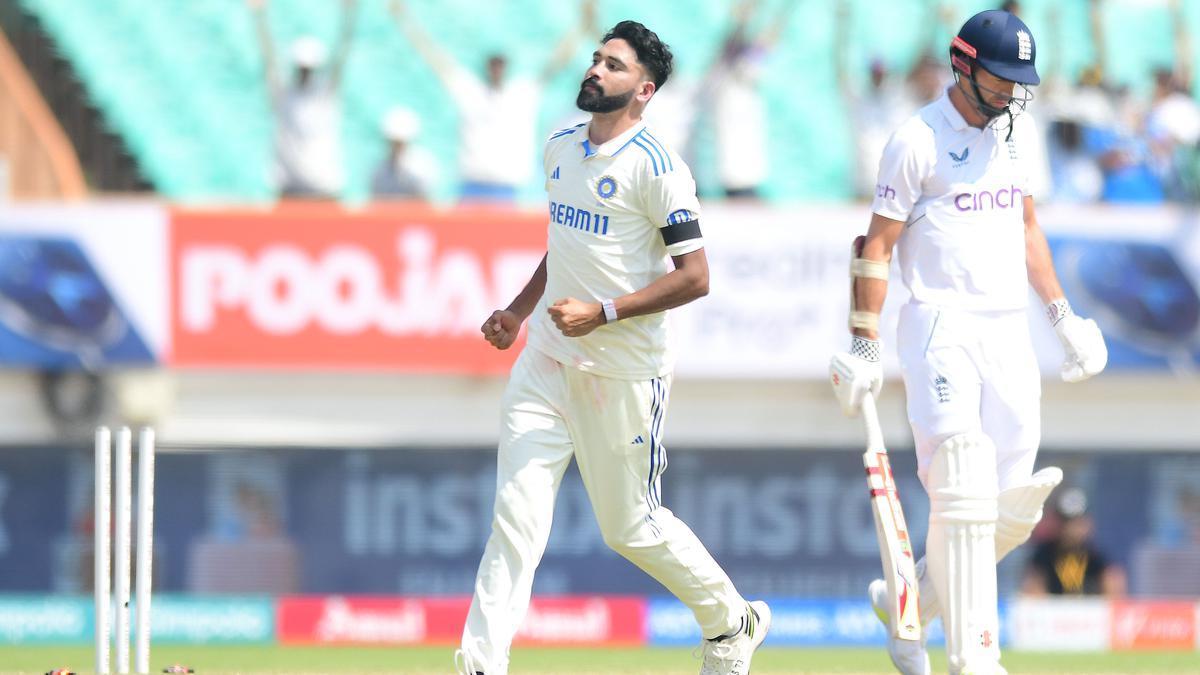
Siraj celebrates the wicket of England’s James Anderson.
| Photo Credit: VIJAY SONEJI
IND vs ENG third Test
Hallmark of a standout participant and an incredible crew is their skill to vary — and execute — plans halfway by way of a recreation. A mix of Ben Duckett’s onslaught on the second night and R. Ashwin’s withdrawal attributable to household emergency meant India had no possibility however to modify into Plan B to maintain England at bay.
Mohammed Siraj, the pacer who returned his finest figures at house, mentioned, revealed a fast assembly forward of the beginning of the day’s play — with lengthy spells being the mantra — made the job simpler for the bowling unit. “In the morning when we got to know that Ash bhai is not there, more responsibility fell on us. Rohit bhai told us that we will need to bowl long spells and I love bowling long spells,” Siraj mentioned after the third day’s play.
“For a fast bowler in Test match cricket, one cannot set up a batsman in three-four overs. And we got success due to long spells. We stopped runs and got wickets.”
Long spells certainly turned out to be a blessing in disguise. After the second day’s play, Ashwin had pressured how Ben Duckett’s onslaught had not perturbed India’s bowling unit. While Siraj reiterated the truth that “they were hitting good balls for fours,” the third morning noticed aggressive fields making means for defensive fields.
Kuldeep Yadav and Jasprit Bumrah regained the management at the beginning, with Kuldeep bowling a 12-over spell to choose two key wickets.
“Since we were one bowler short, the remaining four bowlers had to bowl long spells. Ash bhai (Ashwin) was our fifth bowler and I only wish that his mother gets well soon,” Siraj mentioned.
“If you bowl long spells you should not try much but be consistent with it (line and lengths). They are not used to defending all six balls (in an over), if they have defended on two, they are going to attack the third.”
Source: www.thehindu.com




